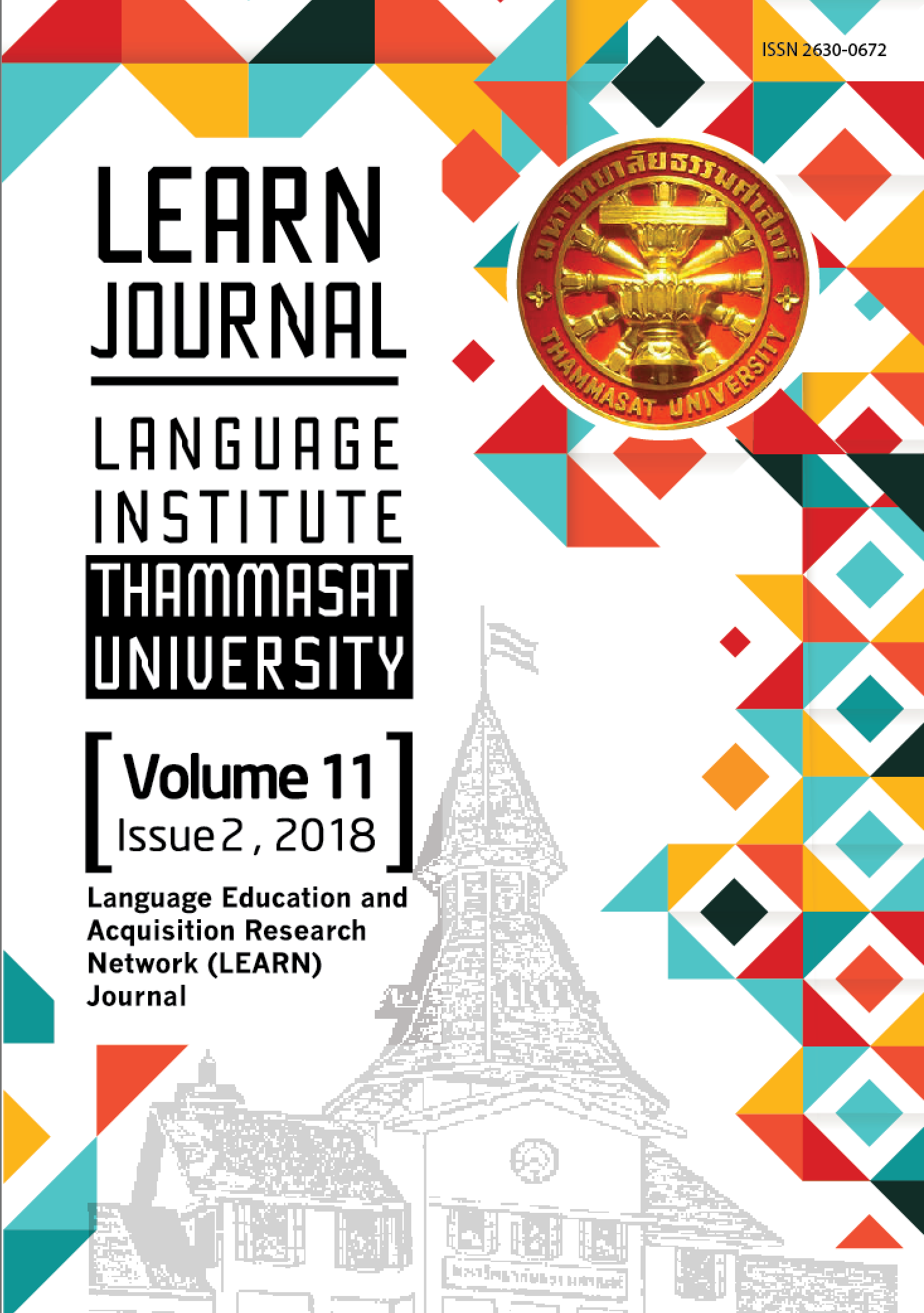The Effects of Stress and Tones in Thai on the Pronunciation of English Polysyllabic Loanwords among Thai EFL Students
Main Article Content
Abstract
This paper reports the qualitative analysis of an interlanguage study investigating Thai EFL students’ pronunciation of English loanwords used in the Thai language. It aims to analyze the extent to which the stress and tonal systems in Thai affect the stress placement of English polysyllabic loanwords in the pronunciation of Thai students, as perceived by a native English listener. Participants were 30 English majors studying in a private university, classified into two groups: high and low, based on their relative English proficiency. Three tasks were used to collect data. Two oral-reading tasks included (1) reading the target English loanwords in English sentences, and (2) reading those words in isolation, which is regarded as a more formal style of oral-reading. The third task required the students to mark the primary stress symbol on the stressed syllable of each target word to assess their knowledge of the English stress patterns. The 30 target loanwords were classified into 3 categories: loanwords with two syllables, three syllables, and four syllables. The results show the transfer of the students’ first language (L1) to the greatest extent when performing the oral reading of two-syllable loanwords in sentences. The use of full vowel length on the final syllable of the many two-syllable loanwords, presumably resulting from the carryover of the Thai stress system, led the native English listener to perceive the final syllable as being stressed. Interestingly, for loanwords with three and four syllables, it was found that although it appeared that the students placed stress quite randomly, only a small number of students misplaced stress on the final syllable. It could be hypothesized that many students became aware, from their learning experience, that stress does not usually fall on the last syllable of loanwords containing certain suffixes that they were familiar with. Thus, they avoided placing stress on the last syllable of these loanwords. The findings suggest that transfer of the stress and tonal systems in Thai plays a crucial role in the pronunciation of frequently-used loanwords with two syllables when the students read these words in English sentences.


